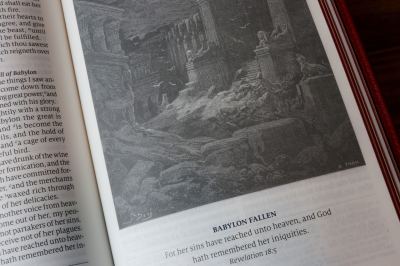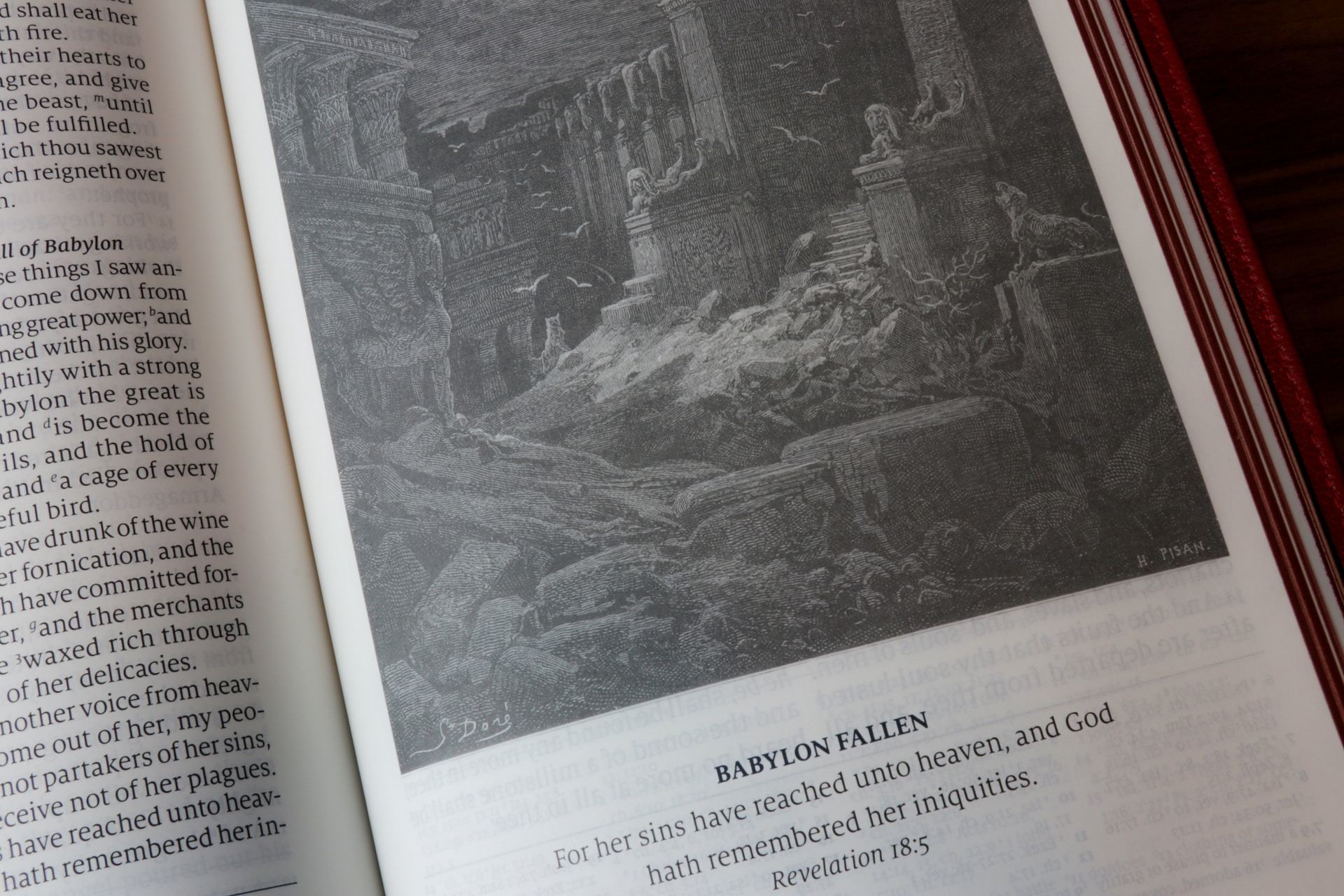It was July 4, 1776, in Philadelphia, Pennsylvania, when representatives of 13 American colonies gathered to declare their independence from British rule. The famous opening statement of the Declaration of Independence announced the big picture. It read:
“When in the Course of human events, it becomes necessary for one people to dissolve the political bands which have connected them with another, and to assume among the powers of the earth, the separate and equal station to which the Laws of Nature and Nature’s God entitle them, a decent respect to the opinions of mankind requires that they should declare the causes which impel them to the separation.”
This introductory paragraph might be said to be a broad and concise overview, an announcement of the colonies’ intention to be independent, and it outlines the philosophical principles behind their momentous decision.
After this initial declaration, this Founding Document proceeds to provide specific reasons for the colonies’ decision to part ways. The bulk of this charter of freedom is committed to laying out clearly the grievances against King George III, and the British government. It provides a list of specific acts and policies that the colonists deemed tyrannical.
The document concludes with a formal declaration of independence, saying:
“We, therefore, the Representatives of the United States of America, in General Congress, Assembled, appealing to the Supreme Judge of the world for the rectitude of our intentions, do, in the Name, and by Authority of the good People of these Colonies, solemnly publish and declare, That these United Colonies are, and of Right ought to be Free and Independent States; that they are Absolved from all Allegiance to the British Crown, and that all political connection between them and the State of Great Britain, is and ought to be totally dissolved; and that as Free and Independent States, they have full Power to levy War, conclude Peace, contract Alliances, establish Commerce, and to do all other Acts and Things which Independent States may of right do. And for the support of this Declaration, with a firm reliance on the protection of divine Providence, we mutually pledge to each other our Lives, our Fortunes, and our sacred Honor.”
This is such a remarkable text. It is a Revolutionary Manifesto, quite distinct from any other in human history. It is so extraordinary that I cannot simply speak of it without lauding it. It captivates my attention, giving me goosebumps, whenever it’s read.

However, this is not the point of my mentioning it at the beginning of Revelation chapter 18’s commentary. Its purpose here is to provide a historical example, which illustrates the use of the big picture preview followed by specific details to communicate a significant event and the reasons for it.
In Revelation: Unlocking the Future, author Edward Hinson writes:
“The fall of Babylon announced in 14:8 is now repeated (18:2) as final and decisive. As we have seen so many times in the Apocalypse, we are given the big picture as a preview. Then the specific details follow in order. That is exactly what we have here. The proleptic announcement was made in 14:8 as a preview of what was coming in chapters 15-18. Now we are given the final details of the destruction of the ‘city of man.’”
Consider what the scriptures say:
“After all this, I saw another angel come down from heaven with great authority, and the earth grew bright with his splendor. He gave a mighty shout: ‘Babylon is fallen — that great city is fallen! She has become a home for demons. She is a hideout for every foul spirit, a hideout for every foul vulture and every foul and dreadful animal. For all the nations have fallen because of the wine of her passionate immorality. The kings of the world have committed adultery with her. Because of her desires for extravagant luxury, the merchants of the world have grown rich’” (Revelation 18:1-3).
Chapter 18 starts with another angel that comes onto the stage. Some want to say this angel is Christ, but that conclusion seems unnecessary because God’s government for angels is made of a hierarchy. This angel obviously possesses such profound authority that his bright radiance illuminates the entire world.
Charles Ryrie, in his commentary on Revelation, surmises that this angel’s glory is so magnificent it reverses for a time the darkness that resulted as a part of the fifth bowl judgment (16:10).
The fact that the angel twice announces that Babylon has fallen is significant. It suggests a dual judgment. Babylon has a dual nature. She is both a religious system and a political system.
Also, important to note is the angel’s repetition of the announcement is for emphasis. It stresses that Babylon’s destruction is as sure as gravity’s pull. Moreover, it’s a way of saying that we should pay close attention. Listen, listen, the angel dramatically says, “Babylon is fallen — that great city is fallen” (vs. 2).
Jesus often prefaced his statements with “Truly, truly” or “Verily, verily,” which was a form of repetition for passionate emphasis. For example, in John 3:3, Jesus said, “Truly, truly, I say to you, unless one is born-again, he cannot see the Kingdom of God.” What could be more important to emphasize than the need to be spiritually born anew? So, Jesus accents the urgency of the matter with repetition.
There are many other places in the Bible like this. In Isaiah 6:3 the Seraphim around the throne cry out, “Holy, holy, holy is the Lord of hosts.” Perhaps one of the least known, understood, or highlighted attributes of God is his incomparable holiness.
Because of their rank hypocrisy and religious pretense, in Matthew 23, Jesus pronounced a series of woes on the Scribes and Pharisees, saying, “Woe to you,” multiple times.
In John 13:34, Jesus stressed that his disciples were to love each other. “Love each other,” he said. “Just as I have loved you, you should love each other.” The repetition underscores for every follower of Christ the centrality of love in Christian ethics.
Pay attention, pay attention, says the angel, “Babylon is fallen — that great city is fallen” (vs. 2). “Take notice, take notice,” “Heed closely, heed closely,” “Listen, listen,” the angel somberly admonishes.
George Sweeting, once the president of Moody Bible Institute, expressed how critical it is to listen to God. He wrote in his commentary on the epistle of James, How to Solve Conflicts:
“Listening has been described as an art that requires as much time, effort, and perseverance as any other art form … Many people, it seems, suffer from this disease of poor attention. Some will miss heaven and eternal life because they did not listen. Others will miss being used by God because they failed to be attentive to his voice … It is very sad when men and women fail to listen to one another. But it is eternally fatal when they fail to listen to God. Jesus said, “My brethren are these which hear the word of God and do it” (Luke 8:21).
What message does God so earnestly declare through his messenger, the angel, that he wants people to mind well?
The fall of Babylon highlights the absolute certainty of God’s judgment!
Some people erroneously think they can successfully ignore God and his requirements for right living. Some are tempted to believe that because the wicked sometimes prosper, they may never have to pay for their crimes against God and their fellow man. But this is a fact, in the end, no one will ever get away with a thing. God’s judgment is inevitable.
Number 32:23 warns, “You may be sure that your sin will find you out.” The apostle Paul in his epistle to the Galatians advised, “Don’t be misled — you cannot mock the justice of God. You will always harvest what you plant” (Galatians 6:7).
Decades ago, Missionary Norman Lewis in, The Sword of the Lord, shared an astonishing story.
In a lawyer’s office, there was a caged starling known for mimicking human voices and responding when called. One day, a young boy named Charlie entered the office. The lawyer stepped out for a few minutes, and upon his return, he noticed the birdcage was empty.
Puzzled, the lawyer inquired, “Where is the bird?” Charlie replied, claiming that he didn’t know. The lawyer pressed further, saying, “Son, that bird was securely in its cage when I left this room. Where could it have disappeared?” Charlie repeated he didn’t know, suggesting perhaps the cage had been left open, and the bird flew away.
In response, the lawyer called out, “Starling, where are you?” “Shrill, shrill,” went the starling in reply, “Here I am, here I am.” Surprisingly, the starling’s mimicking voice came from Charlie’s pocket.
Imagine Charlie’s dilemma. He had stolen the bird and hidden it, thinking he had executed the perfect crime. He was convinced he had escaped any consequences for his actions. To conceal his wrongdoing, he had told lies. However, the moment the bird revealed itself from his pocket, Charlie’s guilt was apparent. He couldn’t utter a word in his defense. The bird bore witness to his guilt, exposing his theft and deceit.
Charlie’s circumstances are a powerful metaphor for what awaits those who believe they can withhold from God what is rightfully his. Those who think they have successfully hidden their sins will ultimately find their transgressions revealed, their guilt laid bare before God, and judgment will inevitably result.
Babylon’s judgment has come in Revelation chapter 18. Babylon is exceedingly wealthy, prosperous, and obsessed with materialism, luxury, and extravagance. She is exceptionally rich and has made the merchants of the world rich, too. The Bible also seems to implicate her for economic exploitation and ignoring the needs of the vulnerable and the marginalized.
In Luke’s Gospel, Luke 16:19-31, Jesus spoke about a rich man and a very poor man named Lazarus. The rich man disregarded the needs of Lazarus, a man in bad health, his body covered in sores. Lazarus was so impoverished he desired the scraps from the rich man’s table. Eventually, both men died. Both went into the afterlife, but their destinations were dramatically different. Lazarus was carried by angels to Abraham’s side in a place of bliss and comfort, Heaven. The rich man, on the other hand, was in torment, Hell. From his place of agony, the rich man could see Abraham and Lazarus enjoying the delights of their heavenly dwelling and cried out for them to cool his tongue with water and warn his family about the consequences of their actions, lest they end up in a place of eternal suffering like himself.
Jesus’ story about the rich man and Lazarus is a warning against self-centeredness, indifference, and neglect of people we should help. The rich man’s self-indulgence and inattention to Lazarus during his lifetime is emphasized as contributing factor to his ultimate fate. The story is not so much about wealth itself, but how one uses or misuses it.
The rich man in the Gospel of Luke and Babylon in the book of Revelation are both represented as having enjoyed excessive wealth, luxury, and prosperity during their earthly existence. The rich man wore the finest clothes and lived every day of his life in comfort (Luke 16:19). Babylon was a city where there was extravagance, amenities galore, and opulence, but in both cases, the less fortunate were forgotten (Revelation 18:7-8). These accounts serve as warnings about the dangers of excessive wealth, arrogance, and failing to use one’s wealth to address the struggles of those in dire straits. Embedded in each, is a call to repentance, the need for compassion, and a transformed attitude concerning “the least of these” (Matthew 25:40) in our midst. They highlight the moral and spiritual consequences of such behavior.
The Bible’s instructions are abundantly clear: “What good is it, dear brothers and sisters, if you say you have faith but don’t show it by your actions? Can that kind of faith save anyone? Suppose you see a brother or sister who has no food or clothing, and you say, ‘Good-bye and have a good day; stay warm and eat well’ — but then you don’t give that person any food or clothing. What good does that do? So, you see, faith by itself isn’t enough. Unless it produces good deeds, it is dead and useless” (James 2:14-17).
Many Progressive Christians, however, make such verses in Scripture the sum total of the Christian faith, reducing Christianity primarily to a religion of philanthropy. It is true the Bible says true religion is about helping the poor and others, but the Bible also says we are to keep ourselves “unspotted from the world” (James 1:27), which means we are to avoid immoral activities that can lead to an impoverished life.
Granted, the causes of poverty are multifaceted. Countless are the number of people who find themselves in circumstances beyond their control. Nevertheless, it is also undeniable that a pattern of poor moral decisions can ultimately result in a life marked by economic hardship. The book of Proverbs counsels:
Lazy people are soon poor (Proverbs 10:4). Those who love pleasure become poor (Proverbs 21:17). If you ignore criticism, you will end in poverty and disgrace (Proverbs 13:18). A hard worker has plenty of food, but a person who chases fantasies ends up in poverty (Proverbs 28:19).
A life given to alcohol and substance abuse, a life typified by sloth and a lack of discipline, a life of inappropriate sexual desire and indulgence, a life of dishonesty manifest in theft and fraud, a life of chasing fantasies demonstrated in gambling and living beyond one’s means, a life of pride and arrogance expressed in not taking responsibility for one’s failures, are just some of the ways sin will bring a life down. To remain “unspotted from the world” means to strive for moral and spiritual purity, avoid sinful behaviors, and live life by Christian principles. It’s about living a life that reflects the love, compassion, and righteousness taught by Jesus Christ.
Lives characterized by poor moral decisions generally languish. They may proposer from ill-gotten gain, but their ultimate end will be like that of Babylon. Suddenly, the certainty of God’s judgment falls, and they not only lose their wealth, but they lose their souls (Mark 8:36).
Having departed from the truth of God, Babylon is depicted as the center of idolatry. She has become the home of demons, every foul spirit, every unclean and detestable bird.
In the Old Testament, birds considered unclean according to the Jewish dietary laws (Leviticus 11:11-18; Deuteronomy 14:11-19), were often used symbolically to represent impurity, evil, or spiritual defilement. So, when Revelation chapter 18 speaks of Babylon becoming the habitation of unclean birds, it’s a vivid way of portraying the city’s moral decay and spiritual waywardness, underlining the need for judgment and the consequences of turning away from God’s righteousness.
“Shrill, shrill,” goes the starling, “Here I am, here I am,” unhidden from God’s all-seeing eye. In the divine ledger, no transgression eludes the omniscient gaze of the Almighty, nor does it evade the scales of His justice.
Revelation chapter 18 begins by giving the big picture preview. Like the Declaration of Independence states the 13 Colonies’ intention toward Great Britain, the angel says Babylon is as good as already fallen. From God’s perspective, her fate is already cast. And just as the Declaration listed the complaints against King George III, the angel lists God’s grievances behind his decision to severely judge Babylon.
Here is seen the inescapable results of the ways of Babylon, unchecked by a stalwart Christianity.
Rev. Mark H. Creech is Executive Director of the Christian Action League of North Carolina, Inc. He was a pastor for twenty years before taking this position, having served five different Southern Baptist churches in North Carolina and one Independent Baptist in upstate New York.




























![[Video] More – Aghogho » GospelHotspot](https://gospelhotspot.net/wp-content/uploads/2024/04/More-Aghogho.jpeg)
















